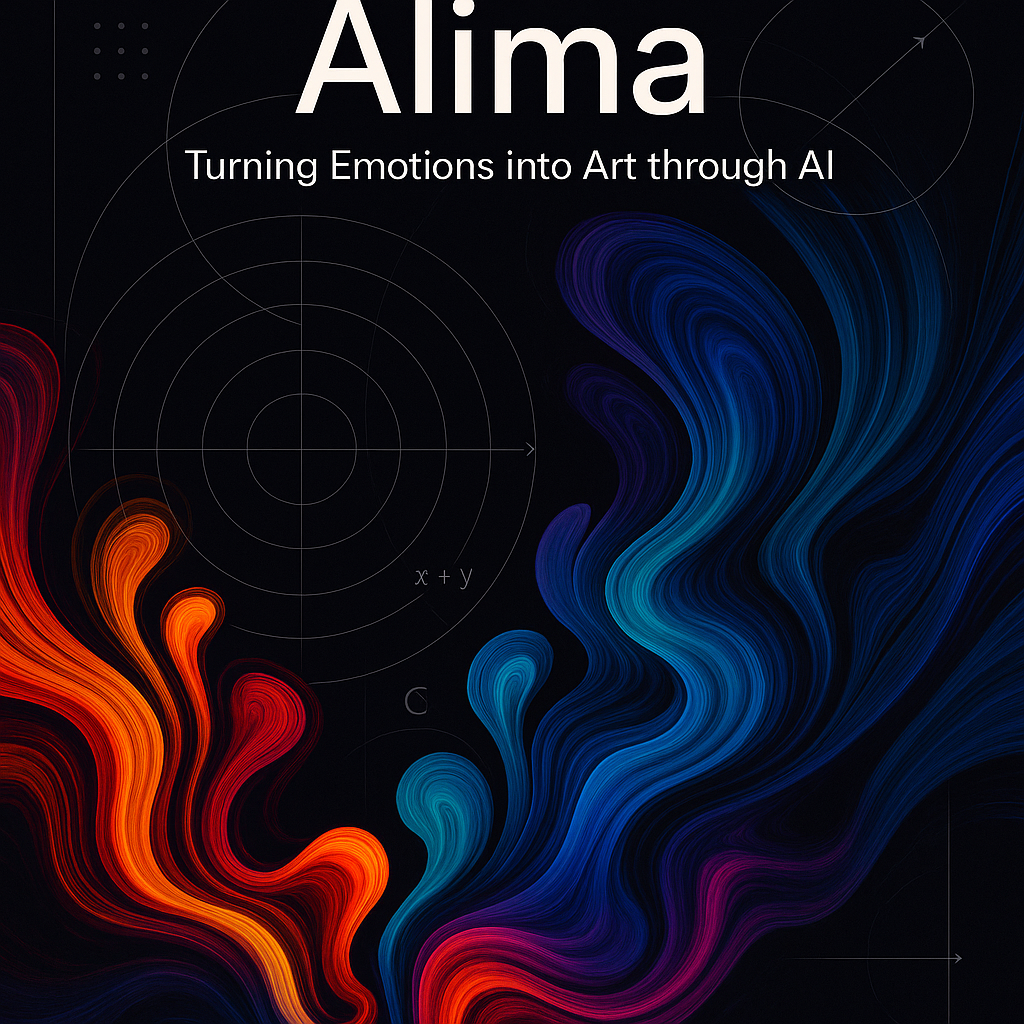Alima: Turning Emotions into Art through AI

Alima is an interdisciplinary AI-driven art project that transforms human emotional states into immersive, generative artworks in real time. Inspired by the idea that emotions are both deeply personal and universally human, Alima uses applied mathematics, artificial intelligence, and creative coding to bridge the gap between inner experience and external expression.
The System
The project is structured around two interconnected modules working in harmony:
Emotion Recognition Module
This module utilizes facial expression analysis with a trained machine learning model (e.g. CNN-based emotion classifier) to detect and quantify emotions such as joy, sadness, fear, anger, surprise, and calm. The output is a set of emotion percentages, each associated with a predefined color on a psychological-emotional color wheel. The dominant emotion determines the visual atmosphere of the resulting artwork.
Art Generation Module
The visual component of Alima is powered by a generative art engine that renders real-time abstract visuals using physics-based algorithms (e.g. particle systems, Perlin noise, flow fields). The visuals evoke fluid, meditative motion—like ink in water, air currents, or organic growth. Colors blend and evolve based on shifting emotional input, creating a living, evolving emotional landscape.
Goals and Impact
Alima is more than a technical demonstration—it’s an invitation to reflect on how we perceive and communicate feelings. By translating emotion into movement and color, it offers a meditative space for self-awareness, empathy, and artistic exploration.
- Encourages emotional literacy through visualization
- Offers a novel human-AI interaction model grounded in affective computing
- Can be applied in interactive installations, mental health interfaces, or creative therapy
Alima is not just code—it’s an experiment in making the invisible visible, the internal external, and the emotional aesthetic.
Developed as a personal project by Firat Donmez, Alima reflects a growing trend toward the convergence of art, AI, and emotional intelligence. It’s a poetic reimagination of how technology can not only detect us—but also express us.
View on GitHub